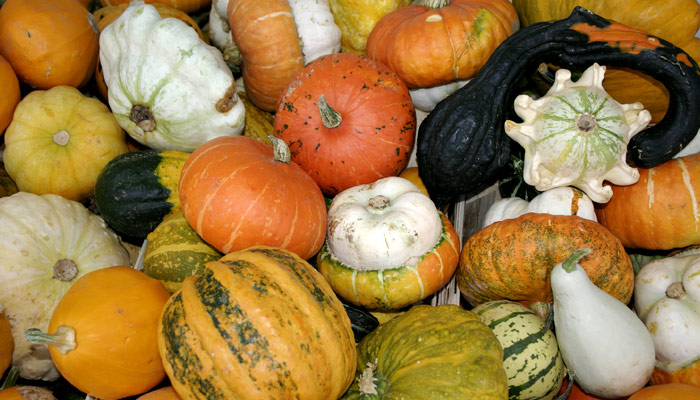With Halloween just a few weeks away, pumpkins are in high demand. As a member of the winter squash family, pumpkins share similar nutritional qualities to the acorn, butternut, spaghetti, and turban squash varieties. When many people think of pumpkins, they often picture large jack-o’-lanterns variety, however, the smaller sugar pumpkin is more often used in culinary practices. All squash varieties are native to Central America and have been consumed for over 10,000 years. Today, pumpkins have come to represent not only Halloween, but also the fall season and harvest.

- Pumpkins, like other winter squash, are an excellent source of carotenes – the richer the color the richer the concentration of carotenes.
- Pumpkins also provide vitamins C, B1, B6, folic acid, pantohenic acid, potassium and dietary fiber.
Health Benefits:
- Rich in carotenes, pumpkins and winter squash have been shown to create a defense against many forms of cancer, especially lung cancer.
- Carotene is also effective at preventing heart disease and the development of type 2 diabetes.
In today’s market there is no shortage of pumpkin flavored dishes from coffee drinks to breads. Unfortunately these products often do lack the same nutritional qualities as authentic pumpkin dishes. An easy way to enjoy pumpkin this season is to simply mash it like potatoes. Another tasty tip is to freeze cubes of pureed pumpkin and add it to your favorite vegetable soup recipe. For a filling and healthy snack, try blending puréed pumpkin with yogurt, cinnamon and ice for a unique take on a smoothie. For more information on the nutritional benefits of pumpkins and other squash, read my book “The Encyclopedia of Healing Foods”.



